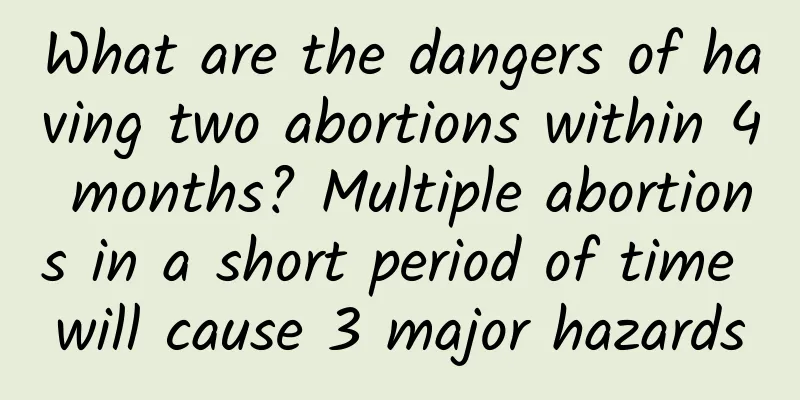What to do if there is too much pelvic fluid

|
When there is too much pelvic effusion, you must go to the hospital for a check-up. If it is caused by pelvic inflammation, you can treat it at this time. If it is in the acute stage of inflammation, you can use intravenous infusion to treat it. If it is a chronic inflammation, you can use Chinese medicine enema plus physical therapy to treat it, and cooperate with moxibustion to regulate it. If there is too much pelvic effusion, you must go to the hospital for relevant examinations. If it is confirmed to be pelvic inflammation, you can treat it according to pelvic inflammation. If there is blood accumulation in the pelvis, or there is irregular effusion, you must be alert to whether there are other lesions at this time. Therefore, if there is too much pelvic effusion, you must go to the hospital for color ultrasound and blood tests to determine whether it is caused by pelvic inflammation. If it is pelvic inflammation, you need to go to the hospital to select the appropriate medicine for symptomatic treatment according to the condition. Most treatments are effective. What medicine is suitable for pelvic effusion? Pelvic effusion is not a disease of all kinds. The pelvis itself can have physiological effusion. There is a certain amount of lubricating fluid between our organs. The pelvic effusion can increase appropriately after ovulation, but there are also individual differences. When checking for pelvic effusion, first combine whether there is obvious lower abdominal pain or gynecological inflammation symptoms such as backache. You can also regularly check whether there is tenderness in the uterus and adnexa. If it is obviously caused by inflammation, only treatment is needed. If it is a chronic inflammation, Chinese herbal medicine treatment is generally chosen, or other physical therapy or enema is used as an auxiliary. Can pelvic effusion cause anal prolapse? Pelvic effusion is a physiological effusion because there can be lubricating fluid between the organs in the pelvic cavity, but if there is a lot of pelvic effusion or it is accompanied by stomach discomfort, a feeling of falling, etc., it is caused by inflammation. This requires checking whether there are symptoms of tenderness in the uterus and adnexal area, so some pelvic effusions are related to anal falling sensation. However, this does not depend on gynecological double diagnosis and examination. Some are just physiological phenomena, and some are pelvic effusions caused by inflammation or pelvic tumors. |
<<: What are the symptoms of premature ovarian failure?
>>: What to check after abortion
Recommend
There are several tests for abnormal leucorrhea
Common examinations for abnormal vaginal discharg...
What can I eat to shrink my uterine fibroids? What can I eat to make my uterine fibroids bigger?
What can I eat to shrink my uterine fibroids? Wha...
What are the common treatments for adnexitis?
What are the main common treatments for adnexitis...
Is it possible to cure adenomyosis?
Some diseases can be cured, but many cannot. Aden...
Will drinking whole milk make you fat? Which one is more nutritious: full-fat, low-fat, or skim?
If you want to supplement calcium and high-qualit...
What serious harms can adnexitis cause?
Since adnexitis can cause great harm to women, ma...
[Video version] Eat a big meal to clean your stomach, and if you want to lose weight, oatmeal has 4 great weapons to help you eat better!
I have been eating too much delicious food recent...
What are the symptoms of inflammation after abortion?
Inflammation after abortion may manifest as abdom...
What should patients pay attention to after endometrial thickening surgery?
We all know that endometrial thickening can cause...
Does female cervical erosion have anything to do with men? What happens if female cervical erosion is not treated for a long time?
Is cervical erosion related to men? Cervical eros...
Experts remind: Ovarian cyst care is very important
Although ovarian cysts themselves will not cause ...
What are the common methods for diagnosing pelvic inflammatory disease?
Pelvic inflammatory disease is a common disease a...
How to prevent premature ovarian failure? Will menstruation occur with premature ovarian failure?
The ovaries are the most important reproductive o...
Analysis of typical cases of acute pelvic inflammatory disease
The symptoms of acute pelvic inflammatory disease...
The cause of cervical erosion is also related to viral infection
From the physiological structure of the female ce...









